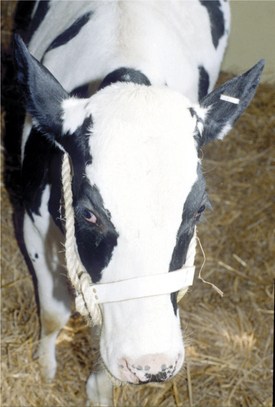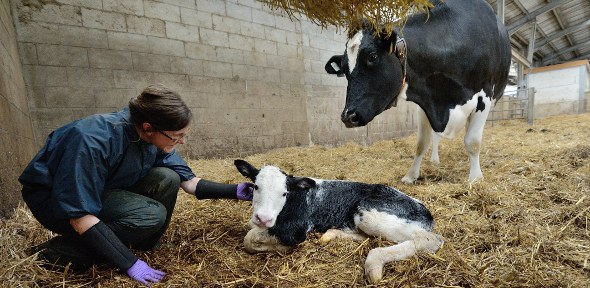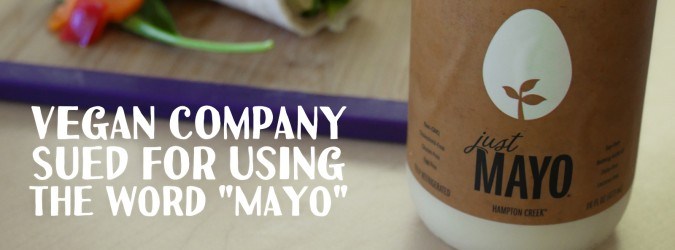The most useful metaphor I’ve heard used to describe the work of an effective animal advocate is that we serve as criminal defense attorneys for animals. But unlike an actual public defender, every last one of our clients is 100 percent innocent.
The reason that this is such a helpful metaphor is that public defenders and vegan advocates each have essentially two jobs. Their first job is to, if at all possible, win the case and to secure their clients’ freedom. But no matter how innocent a client may be, not every case will be won. So in these instances the job becomes advocating effectively for the minimal possible sentence. Five years of supervised probation may be a profound injustice for someone wrongfully convicted, but it is nevertheless incomparably better than a 20 year prison term.
Now imagine a public defender so obsessed with justice that she refused to play the game at a hearing when her unfairly-convicted client was being sentenced. Imagine her insulting the judge and prosecutor for this travesty of justice, and then daring them to impose the maximum sentence in order to illustrate the unfairness of it all. It’s safe to say the defendant would be aghast—he’s now been victimized twice; first by a flawed legal system, and second by his own attorney who, obsessed with principle, squandered her client’s only remaining chance of avoiding a stiff sentence.
I know the scenario I’ve described above seems insane, and that any public defender acting as I’ve described would be promptly disbarred. But the reality is that many vegan advocates today are, like our hypothetical public defender, refusing to act in the best interests of their clients during sentencing.
As a vegan advocate, just like a public defender, there are cases you’ll win and cases you’ll lose. When you lose a case it’s your responsibility to do everything possible to minimize your client’s punishment to whatever extent you can. It no longer matters that he’s innocent and deserving of no punishment whatsoever. That ship has sailed. Now the only thing you can do is to advocate as persuasively as you can for the most lenient possible sentence.
What all vegan advocates have in common is that we all work to the best of our ability to win every possible case. Through our skills and persuasiveness may vary we all do everything we can to convince people to embrace a totally vegan diet. And as a vegan advocate you’ve no doubt noticed by now that you’ve lost your share of cases. Try as you might it’s exceedingly unlikely that you’ve persuaded your father, your sister, and your best friend to go vegan—to say nothing of all the other people you’ve ever spoken to about diet.
Inspiring People to Take Another Step
The most strident Level 5 member of the Vegan Police is entirely right about one thing: anything short of embracing veganism entails some level of victimization of innocent animals. It’s a sign that you’ve lost your case. But that’s just the way it is. As an animal advocate, most of the time you’re going to lose the case.
The reality that many vegan advocates have a tough time accepting is that the overwhelming majority of people are unwilling to go vegan today, no matter what arguments you make or how persuasively you make them. And strangely enough, many activists who took years and years to transition to a vegan diet somehow think the rest of the world needs to go vegan tonight. Where these activists have it right is in realizing that we need to be promoting veganism in a clear and unambiguous way as the only diet that is free of animal exploitation. But where these activists get it wrong is when they continue to promote veganism to people who have already ruled it out. This is worse than a waste of breath—it’s squandering a legitimate opportunity to encourage significant change. That’s because the fact that someone has ruled out going vegan does not render that person unwilling to make lesser but still hugely important changes—changes that could eliminate much or even most of the cruelty and slaughter linked to that person’s dietary choices.
As Eating Animals author Jonathan Safran Foer has beautifully put it, the most effective activists are people who are skilled at persuading others to “take the next step rather than the last step.”
author Jonathan Safran Foer has beautifully put it, the most effective activists are people who are skilled at persuading others to “take the next step rather than the last step.”
Looked at this way, outreach becomes a relationship rather than a one-time transaction. What’s more, the confidence gained by taking a small step today often leads to a willingness to take a bigger step tomorrow. Today’s small step away from factory farmed animal products, however inadequate, would never have been taken if the only message expressed was various permutations of, “Go vegan.”
This incremental approach to activism is often called the foot-in-the-door technique, and it is based on numerous sociology stuides that demonstrate that even the smallest step in a given direction makes that person vastly more likely to take bigger steps in the future. In fact, the foot-in-the-door technique is the sociological basis for the vegetarian movement’s single most prominent campaign: Meatless Mondays.
The genius of Meatless Mondays is that it makes a request so small and reasonable—merely skip meat on Mondays—that it’s a trivial commitment for most people, and it’s still easily achievable to even die-hard meat-eaters.
But once a person gets a few Meatless Mondays under her belt she will doubtless be receptive to taking bigger and more meaningful steps. Perhaps she’ll quit eating caged eggs next month, go meatless for most meals a few months after that, and maybe even go totally vegan each year. And all of these changes can be traced back to agreeing to participate in a single Meatless Monday.
Good activists will celebrate every one of these steps as a win, which in turn will increase the likelihood of more steps in the future. Activism becomes praising people for the important changes they’re making, rather than scolding them for not yet being perfect.
Now some might worry that this incremental approach to advocacy might be harmful, since it could inspire someone otherwise ready to go vegan to content themselves with a lesser commitment like being a part-time vegetarian, or eating only non-factory farmed meat. Fortunately, serious activists with substantial experience can see through this worry as without merit. That’s because effective one-on-one advocacy depends, more than anything else, on being a great listener.
These activists recognize that it’s crucial to listen intently, and to calibrate your requests and suggestions to what the person is ready for. There will certainly be people you encounter who, once adequately informed, will instantly show revulsion and contempt for everything related to animal agriculture. It would be madness to suggest Meatless Mondays to this sort of person as he is plainly eager to take more substantial steps.
What we need to do is to present veganism as a desirable goal to everyone we encounter, but also show them as many stepping-stones as possible along the way. The river needn’t be crossed in a single leap. It’s our job to inspire and help people to make the biggest steps away from animal products that they’re willing to make today. If we succeed, we’ll celebrate this accomplishment and be back tomorrow to encourage them to make another step.
The post On Regarding Farm Animals as Your Clients appeared first on Vegan.com.





















